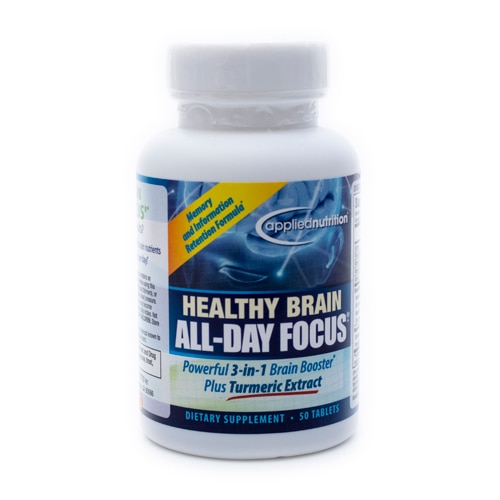America, we’ve got a not-so-healthy problem with the definition of “healthy.”
According to a recent survey by the International Food Information Council Foundation, 96 percent of American consumers seek health benefits from what they eat and drink. However, only 45 percent could identify even one food or nutrient tied to those benefits. For instance, only 12 percent of those surveyed were able to associate omega-3 fatty acids with heart health.
Joseph Clayton, CEO of the foundation, says the annual survey continues to show that “Americans feel overwhelmed by conflicting food and nutrition information.”
“But this year, we’re finding troubling signs that the information glut is translating into faulty decisions about our diets and health,” Clayton adds.
In light of the survey results, the bottom-line question we should be asking ourselves is this: What does “healthy” mean? Unfortunately, there’s no official definition. No government agency regulates the term “healthy” for the food and beverages that we buy.
Perhaps the most succinct definition of “healthy” (and the first one that came up in a Google search for “What is healthy food?”) is this one from the nonprofit organization Breastcancer.org:
Healthy eating means eating a variety of foods that give you the nutrients you need to maintain your health, feel good, and have energy. These nutrients include protein, carbohydrates, fat, water, vitamins, and minerals.
However, that definition doesn’t fully cover “healthy.” So, we asked nutrition experts to expand on the meaning of “healthy.” What follows is a summary of what they told us.
Registered dietitian nutritionist Amanda Sauceda, nutrition coach
A super easy food principle that works is to have more color on your plate and eat more fruits and veggies. Often when most people ask me what they should be eating, instead of looking at things to take away from their diet, a good place to start is to find foods that we can eat more of, and fruits and veggies is great place to start. Eating more color also helps to ensure a wide variety of nutrients. Sometimes we get stuck eating the same things; variety is the spice of life and for our nutrition.
My definition of “healthy” is foods that nourish both body and soul. I do my best to follow the advice about color and eating fruits and veggies, but food should also be enjoyed. A plain chicken breast and steamed veggies are “healthy,” but in reality that dish does nothing for me because it is plain. Eating healthy should also include nourishing foods that you enjoy eating.
Registered dietitian Nancy Snyder, culinary dietitian at Healthy Dining
A “whole food” — which is nutrient dense — will always give you more nutritional bang for your buck than a processed or packaged food item, which simply contributes empty calories, providing little or no nutritional value. While there’s nothing wrong with enjoying your favorite bag of chips or piece of candy now and again, it’s important to choose foods each day that will help to fuel your body beyond just calories.
Registered dietitian Maya Rams Murthy, founder and CEO of concierge nutrition practice Eat with Maya
“Healthy food” is a misnomer. Food is either nutritious — possessing plenty of nutrients that our bodies need — or not. Calling food “healthy” confuses the general public even more.
There is a place for both nutritious and less-nutritious foods in your diet. Consistently eating nutritious foods the majority of the time, with some less-nutritious choices sprinkled in, will yield the best results for a healthy lifestyle and mindset.
Certified nutrition coach Kelly Page, owner of health and wellness website www.tastingpage.com
The healthiest food has no label. Ideally, you should eat fresh food that grows from the ground. In looking at packaged food, look for minimal ingredients. If you can’t pronounce an ingredient, your body is probably going to have a hard time digesting it as well. Keep it simple, and your body will stay happy and energized.
Certified nutrition coach and personal trainer Esther Avant, owner of Esther Avant Wellness Coaching
Whether or not a food is healthy really depends on what you’re comparing it to. I don’t consider any foods inherently good or bad. And more importantly, no foods make you good or bad if you do or do not eat them.
Are some foods more nutritious than others? Absolutely. But while nutrition might be the primary reason that we eat, it’s not the only reason. There are also cultural, religious and societal reasons.
Instead of making yourself mental trying to determine whether or not certain foods are “healthy,” think about food on a spectrum where some are better and some are worse but none are off-limits or required.
Foods on one side of the spectrum are those that make you feel good, provide you with nutrients, add health and are largely unprocessed — foods like fresh veggies, fruit and lean protein.
Foods on the other side of the spectrum are those that make you feel bad or that you have trouble regulating portions, they don’t provide your body with much in the way of nutrients, and are artificial or processed, like snack foods such as chips and pastries.
Registered dietitian nutritionist Kameo Snyder, food transformation coach
It’s easy to cut through the clutter when you adopt the philosophy that health can’t be bottled, boxed, bagged or placed into a can. Nutrient-dense foods that are packed with phytochemicals and antioxidants that promote health and prevent disease are the quintessential definition of “healthy” food. These foods protect cells from physiological oxidative damage, which promotes the onset of disease.
Licensed dietitian nutritionist Courtney Ferreira, owner of nutrition consulting business Real Food Court
We are constantly told specific foods or nutrients are the answer to our health and weight concerns when, in fact, it is about the entire diet and making the best food choices whenever we can. For instance, milk is an excellent source of calcium, vitamin D and protein, but some people suffer from lactose intolerance. For these people, milk may not fall under “healthy” in the context of their diet. I encourage people to take the rocket science out of their eating and focus on what makes them feel good.




